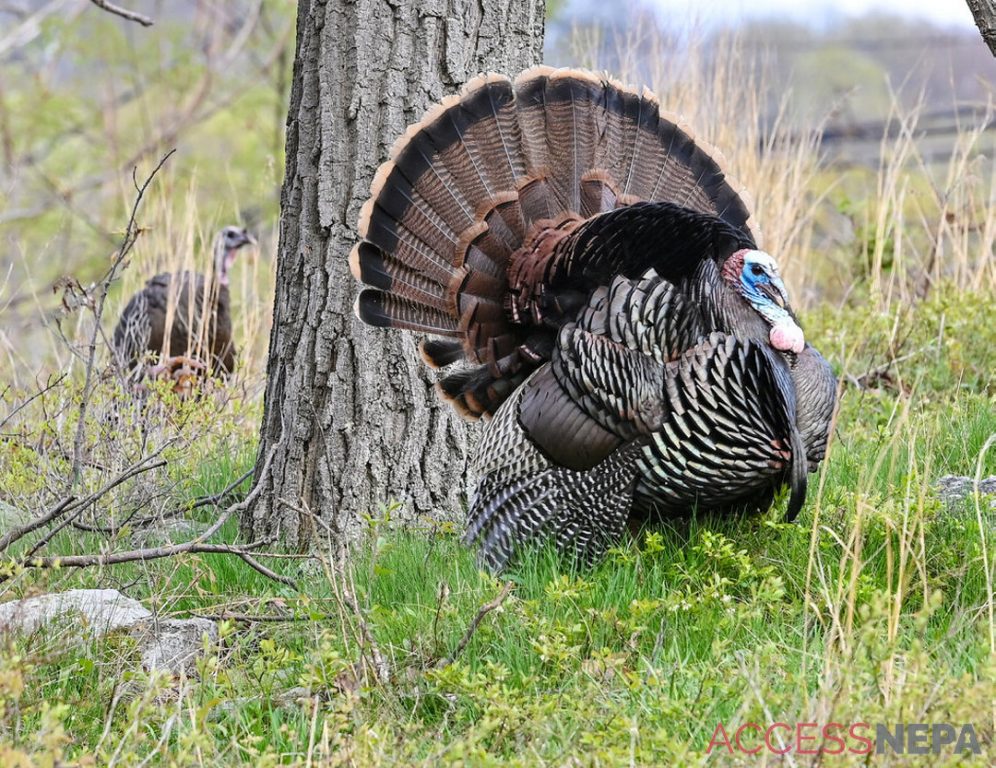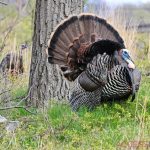BY DOYLE DIETZ
In 2019, the Pennsylvania Game Commission sent out a call for the state’s wild turkey hunters to help monitor the statewide health of this popular big-game species.
Although the majority of turkey hunters favor spring gobbler season because of the built-in challenge of calling a tom into shotgun or bow range, which goes against nature where gobblers call hens to them, the call for help was overwhelming. Again this year turkey hunters have responded in force to participate in the study that monitors the presence of West Nile Virus that the free testing kits supplied by the PGC were exhausted by the mid-October deadline for applying.
A combined study by PGC Bureau of Wildlife Management, the National Wild Turkey Federation National and Pennsylvania chapters, the U.S. Fish and Wildlife Service Multi-State Conservation Grant Program and the Southeastern Cooperative Wildlife Disease Study at the University of Georgia, it collects blood samples and feathers from successful hunters who take a fall wild turkey throughout Pennsylvania. This project, which will conclude in 2021, is a continuation from 2019 to estimate WNV infection rates in Pennsylvania wild turkeys to determine the potential for WNV to impact turkey populations.
Volunteer hunters were mailed a blood-sampling kit containing instructions, equipment for blood sampling and feather collection and a self-addressed stamped envelope for submitting. If unsuccessful in taking a turkey this fall, the kit should be saved and used next year.
During the fall 2019 wild turkey season, hunters submitted samples from 194 turkeys across Pennsylvania. Of these, 30 percent had antibodies to WNV or a closely related virus.
This percentage is higher than other highly susceptible species, such as the greater sage-grouse or the American crow, suggesting some turkeys are surviving infection. These findings represent only the first of a 3-year study and are therefore preliminary.
WNV has had devastating effects on numerous bird species since its introduction to North America in 1999. Due to the declining trends in wild turkey and bobwhite quail populations in some states and recent research findings on WNV impacts to grouse populations, the study partners began to research if wild turkey poults and bobwhite quail chicks are susceptible to WNV.
For the WNV Inoculation Study of wild turkey poults and bobwhite quail chicks, day-old bobwhite quail from a reputable hatchery were used because there is no wild bobwhite quail population in Pennsylvania. Biologists from the PGC and NWTF collected wild turkey eggs from 11 nests throughout Pennsylvania this spring, and the eggs were hatched in a bio-secure facility at SCWDS in Athens, Georgia.
After hatching, blood sampling from some poults revealed maternal WNV antibodies were passed from the hen to poult providing these poults immunity to WNV for a 4- to 5-week period. After five weeks the antibodies were no longer present and poults were ready for clinical trials, with the first age class of 6-week-old birds of both species inoculated with WNV in July to determine their susceptibility to the virus.
A dozen poults and 10 quail chicks were inoculated with WNV, and 12 poults and four chicks were inoculated with a sham (placebo). No birds died or showed external signs of infection during the 14-day trial, but the birds were euthanized after the trial and necropsied, with no lesions found in any organs and no birds demonstrating clinical signs attributable to WNV.
A second age class of 15- to 16-week-old birds was inoculated with WNV in September consisting of 12 poults and 10 chicks. A placebo was given to 12 poults and four chicks. No deaths or external signs of disease were detected, but one turkey poult was euthanized during the trial due to an unknown illness.
All inoculated birds showed resistance to and developed antibodies to WNV to protect them from the virus. Sham turkeys also developed antibodies, but none of the sham quail developed antibodies.
It is the goal of the study to determine the levels of antibodies to WNV in the blood of wild turkeys taken in the fall over the three years. This will provide baseline data on WNV infection levels in wild turkeys to help for a better understanding of the implications of the disease across Pennsylvania in relation to mosquito population levels.
For the complete results and goals of the WNV study, visit the disease section of the Pennsylvania Game Commission wild turkey page at www.pgc.pa.gov/Wildlife/WildlifeSpecies/Turkey/Pages/default.aspx.
Dietz is parliamentarian of the Pennsylvania Outdoor Writers Association. Contact the writer: outdoors@republicanherald.com




